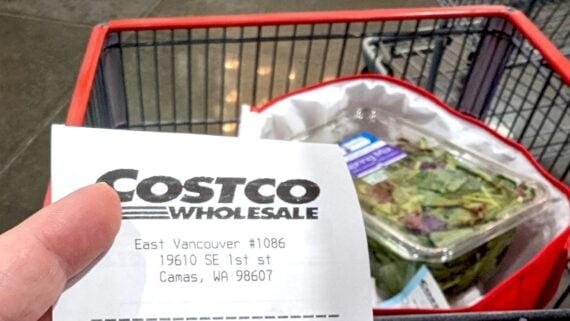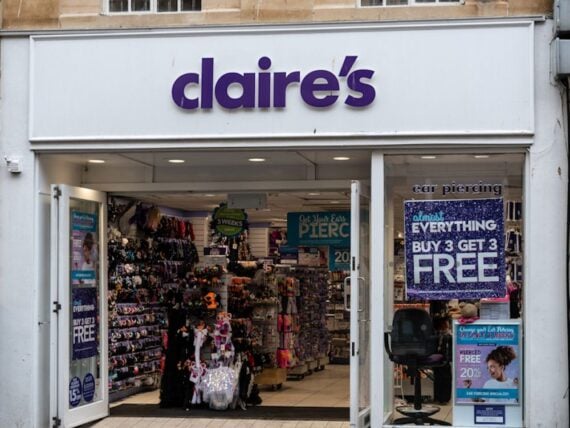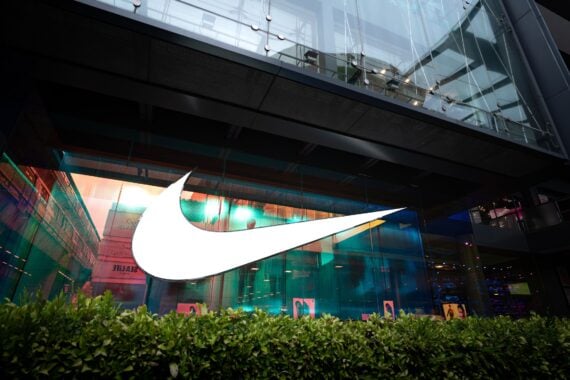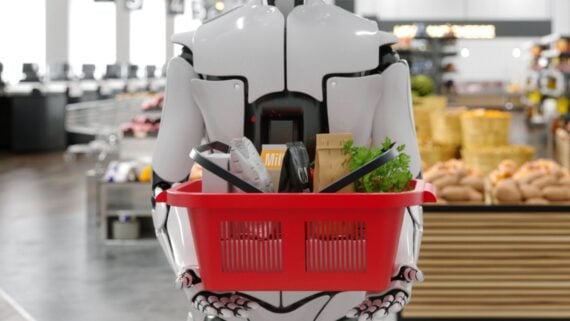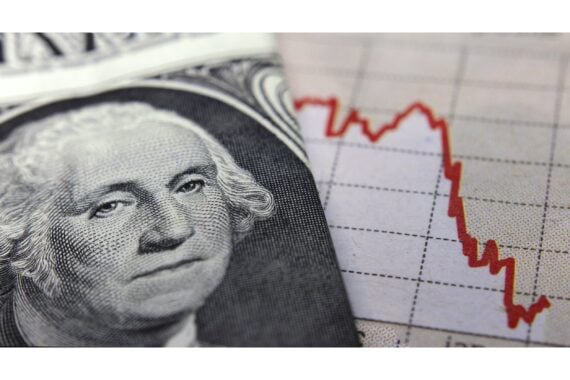Tariffs are driving prices up across the retail industry, with corporations like Walmart raising prices on everything from baby gear to home goods. Shoppers are used to having those costs passed on to them at this point, even though that reality is unpleasant. But one beloved retailer, Costco, has a plan to avoid raising prices due to tariffs. Here’s how the low-cost leader with a cult following does it.
Stocking Up Before the Tariffs
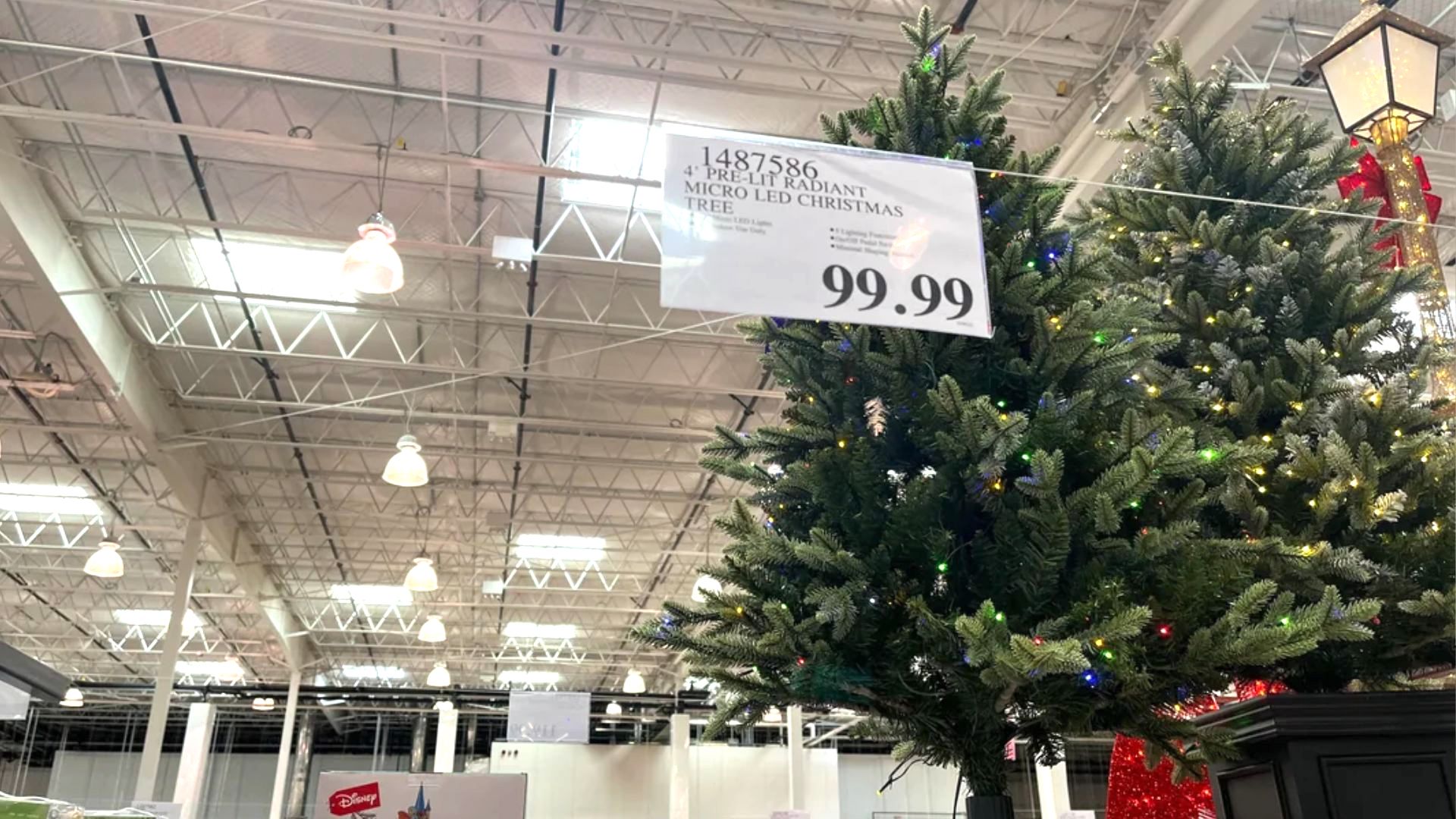
The first step to avoiding the tariffs was not paying them at all. To do that, Costco execs had to plan ahead, purchasing seasonal items well in advance — before tariffs on certain items kicked in. They advanced shipments of items like patio furniture, sporting goods, and other summer items back in May, according to the Wall Street Journal. That allowed the chain to hold prices steady or rise just slightly, company chief executive Ron Vachris said.
Carrying a Limited Number of Items
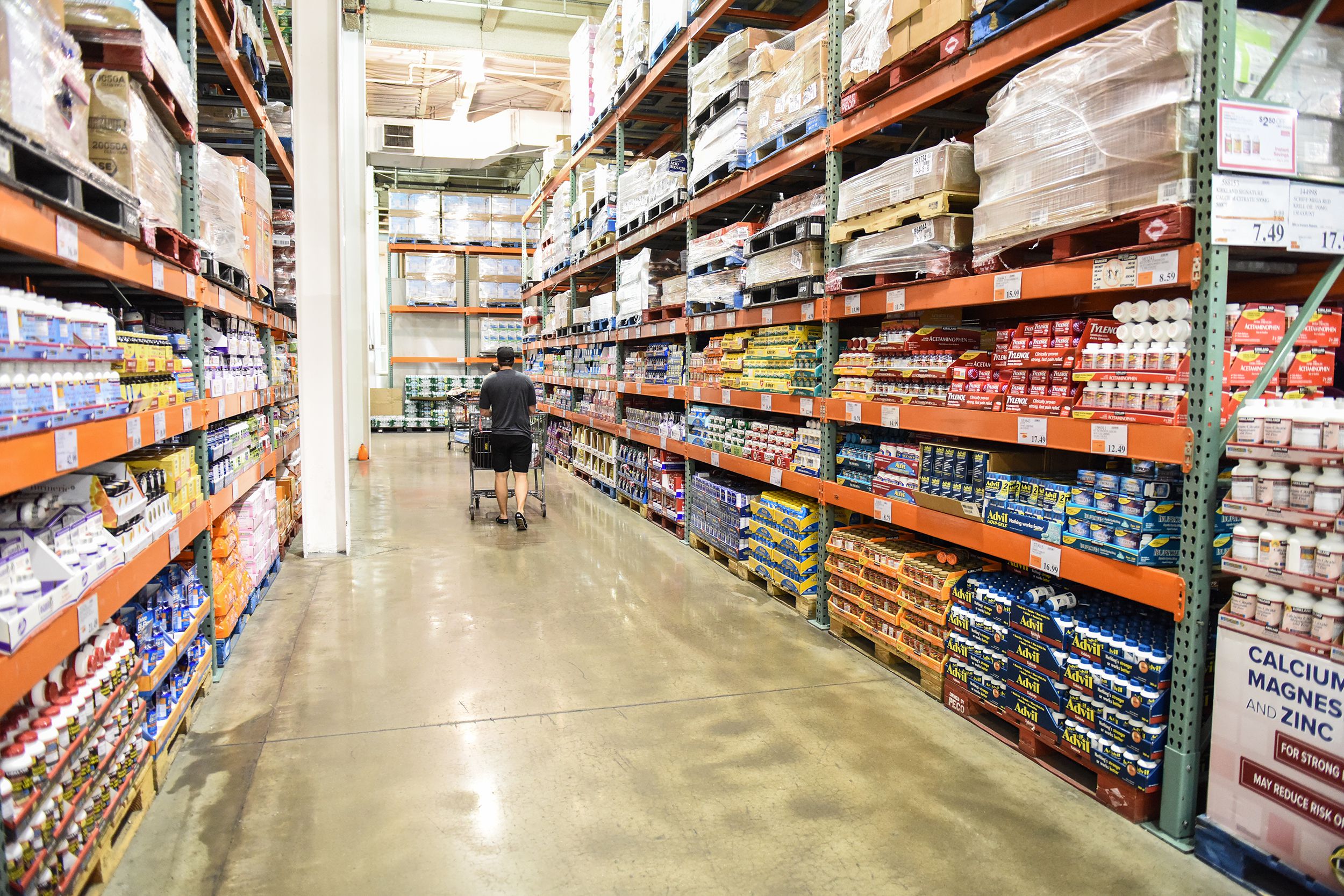
When you shop at Costco, you know that you probably won’t be able to get everything on your grocery or shopping list. The products the store sells are a very carefully curated selection, keeping quality high and ensuring shoppers trust them.
Turns out that’s not just a strategy for customer loyalty but also for keeping costs down. Buyers at Costco only work with a limited number of items, allowing them to know the products and the market inside and out, according to CFO Gary Millerchip. They can watch fluctuating market prices like a hawk, minimizing tariff costs as much as possible.
Leaning into Kirkland Signature
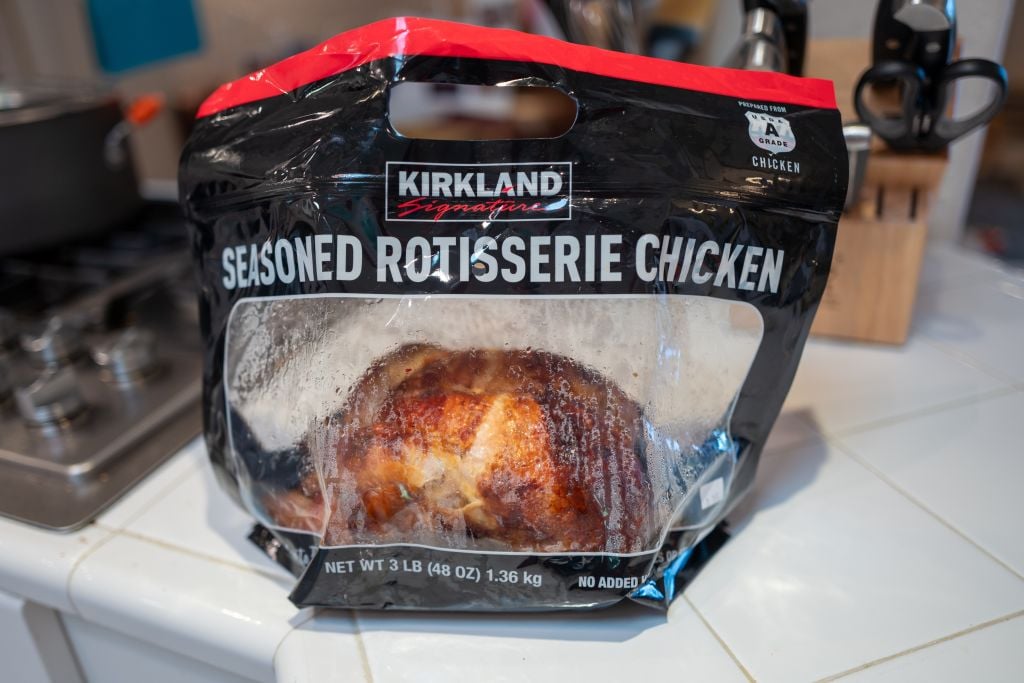
Costco’s private label brand, Kirkland Signature, is very familiar to repeat shoppers, as many of its products are fan favorites ($5 rotisserie chicken or giant pumpkin pie, anyone?!). The supplier of each Kirkland product is a mystery, which allows the company to switch things up to avoid tariff charges if needed. Customers trust that even if they do, it’ll still be a quality product.
Since shoppers don’t know the brand behind the Kirkland Signature products, they’re not going to be swayed by things like commercials and big-name brands. Kids won’t be begging their parents to buy “chocolate sandwich cookies” like they would if they saw the Oreo logo, for example. Store brands are always less expensive, and in this case, it’s not a downgrade.
So Costco is leaning into its Kirkland Signature brand now more heavily than ever, said Millerchip. There have been 30 new KS items recently, such as grass-fed beef sticks and organic extra-firm tofu.
Looking to Local Products
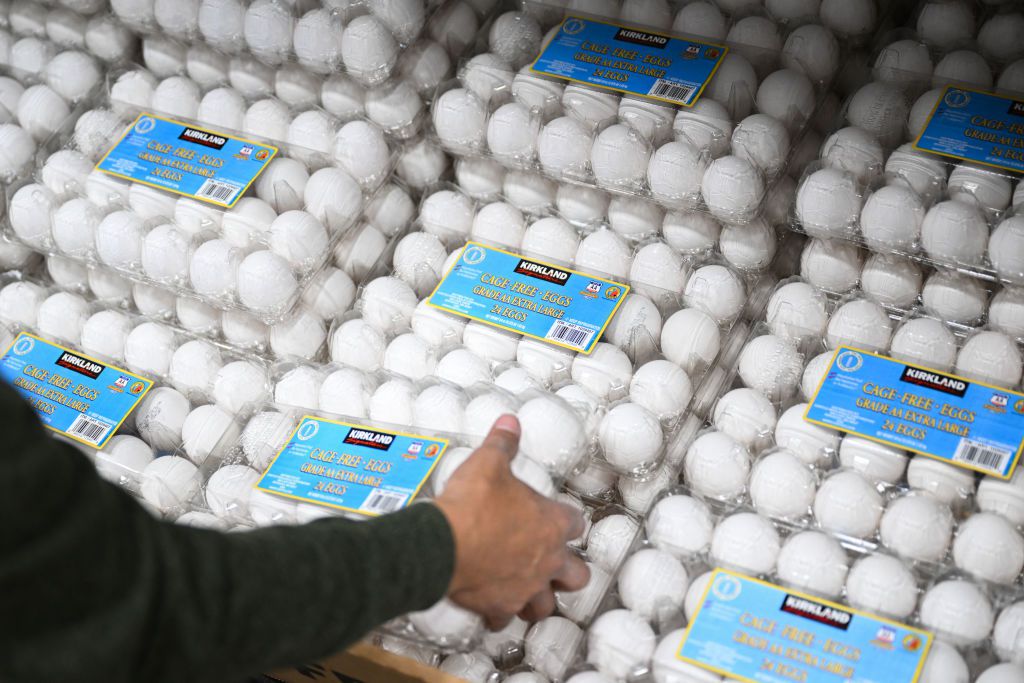
Like other companies, Costco is also looking to purchase local items to save money. In some cases, that means switching to a product made locally instead of overseas to avoid the tariff. But in other cases, it might mean sourcing a product as locally as possible, even for products that weren’t imported to begin with. That can mean items like dairy, eggs, and deli items, which will have lower shipping and transportation costs if sourced close by.
Since Costco is a global company, it can shift sourcing for products “into the countries and regions where the items are sold,” said CEO Ron Vachris on a recent corporate call, helping to lower costs for both the company and the customer.
Staying Flexible
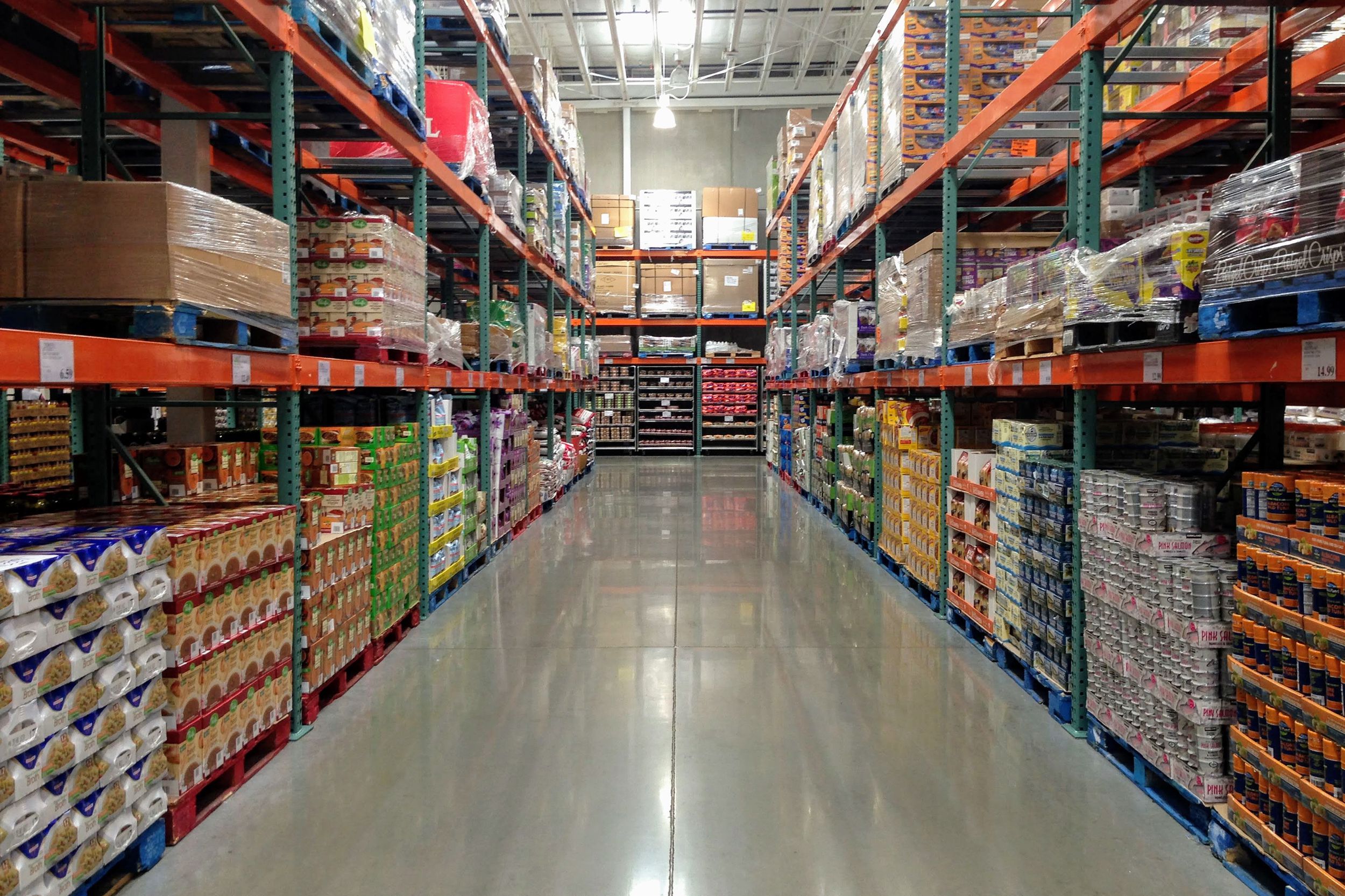
And even though Costco is a global powerhouse, its ability to stay flexible has helped the company reduce the impact of trade wars. The company has the “flexibility to change items” it perceives as having lesser value due to the effects of tariffs, said Millerchip, thanks to its limited number of products, its expert buyers, and the strength of its Kirkland Signature brand.
Trending on Cheapism
More Tariff News From Cheapism

- How Tariffs Are Making Halloween More Expensive — Prices on everything from decor to costumes are getting awfully scary this year. Here’s why.
- These Retailers Are Raising Prices Due to Tariffs — Costco may not be raising prices due to the tariffs, but some retailers certainly are.
- Holiday Decorations May Be in Short Supply Due to Tariffs, Warns Christmas Tree Company — If you’re planning on buying a new Christmas tree, wreath, strands of lights, or any other holiday decor this year, you might want to get a jump on things sooner than later.
